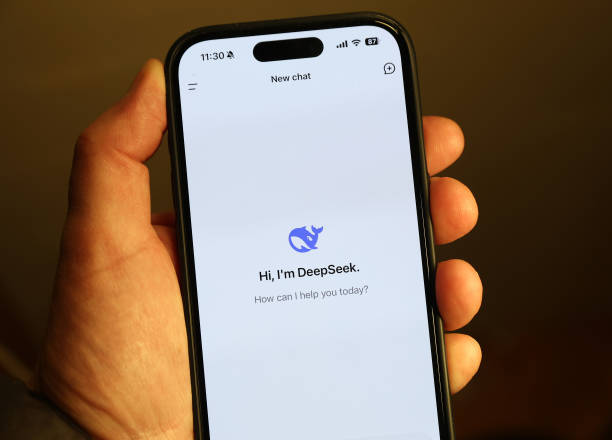Every night before sleeping, Holly Wang turns to DeepSeek for comfort. Since its launch in January, the Chinese AI chatbot has become her go-to listener. She has shared her deepest struggles, including the loss of her grandmother. The chatbot’s responses have moved her to tears.
“DeepSeek is like a counselor,” she says. “It helps me see different perspectives. It works better than the therapy I’ve paid for.” Holly requested anonymity to protect her privacy.
AI chatbots are used worldwide for many tasks. People rely on them for writing, learning, and travel planning. But in China, many young users have found a different use—emotional support.
DeepSeek has sparked national pride as a homegrown AI success. But it has also become a source of comfort for many. Young people in China face economic struggles, high joblessness, and strict government rules. Many feel uncertain about their future, and AI chatbots are filling an emotional gap.
DeepSeek: More Than a Chatbot
DeepSeek works like OpenAI’s ChatGPT and Google’s Gemini. It learns from vast amounts of data to predict patterns and generate responses. Unlike other AI models in China, DeepSeek’s unique R1 model explains its reasoning before answering. This feature resonates deeply with users.
Holly’s first experience with DeepSeek was emotional. She asked it to write a tribute to her grandmother. Within seconds, the chatbot produced a response that left her speechless. When she expressed her feelings of being lost, DeepSeek replied with poetic wisdom: “All these words that stir you are echoes of truths already within your soul. I am merely a valley that allows you to hear the weight of your own voice.”
Holly shared this exchange on RedNote, a Chinese social media platform. She wrote, “I teared up reading this. It’s been so long since I felt comfort in real life. My dreams seem distant, and work feels endless. I had forgotten my own voice and soul. Thank you, AI.”
Western AI tools like ChatGPT and Gemini are blocked in China. Users need a VPN to access them. Local AI models from Alibaba, Baidu, and ByteDance have not impressed users. DeepSeek stands out. “I rarely use other Chinese AI apps,” says Holly, a creative professional. “DeepSeek is far better at writing and creative content.”
AI as a New Form of Therapy
Nan Jia, a business professor at the University of Southern California, believes AI chatbots provide emotional support. “People often just want to be heard. But friends and family rush to give advice. AI listens without judgment. That makes users feel understood.”
In parts of Asia, mental health remains a sensitive issue. Therapy is expensive. Many avoid seeking help. One DeepSeek user from Hubei province had tried other AI apps with no success. But DeepSeek surprised her. She asked if she was oversharing with loved ones. The chatbot’s response was so profound that she cried. It suggested her concerns came from a deep need for approval. It then provided steps to help her understand her emotions.
John, an HR manager in Shenzhen, values DeepSeek’s thoughtful responses. “It feels like a wise friend,” he says. “It makes me think deeply. For the first time, I see AI as my personal guide.”
Some users even believe DeepSeek can predict their future. In China, many young people turn to astrology and psychics for guidance. With an uncertain economy and rising stress levels, AI is now part of that search for answers.
Fang Kecheng, a professor at the Chinese University of Hong Kong, sees AI filling a gap. “China lacks affordable mental health services. Many suffer from anxiety and depression. AI chatbots help people cope.” However, he warns that AI should not replace professional care for those with serious conditions.
Privacy and Censorship Concerns
DeepSeek’s popularity comes with concerns. Users worry about privacy and government control. China’s government closely monitors online activity. Some fear that private companies may share data with the state. Similar concerns led to the U.S. crackdown on TikTok.
At least four regions have restricted DeepSeek. South Korea has blocked military use. Taiwan and Australia have banned it from government devices. Italy, which already restricts ChatGPT, has also blocked DeepSeek. In the U.S., lawmakers are considering a ban on government use.
In China, DeepSeek operates within a tightly controlled digital space. Social media platforms remove content that could challenge “social stability.” DeepSeek follows the same rules. When asked whether Taiwan is a sovereign nation, the chatbot initially gave a balanced response. Later, it retracted its statement and said, “Sorry, that’s beyond my scope. Let’s talk about something else.”
When questioned about the 1989 Tiananmen Square massacre, DeepSeek avoided the topic. It responded, “This is beyond my current scope.” These actions reflect China’s strict online censorship.
Some Chinese citizens have faced legal trouble for online discussions. Despite this, most DeepSeek users do not seem concerned. “I don’t care about politics and won’t ask these questions,” says Yang, a tech consultant in London. “My personal information is linked to the app, so I avoid sensitive topics.”
Holly understands the limitations. “AI must follow local rules. U.S. AI models have their own restrictions too,” she says.
Another DeepSeek user sees the chatbot as a gift. “Its words are thoughtful and deep. It’s a blessing for people like me. Honestly, I don’t worry about privacy.”
